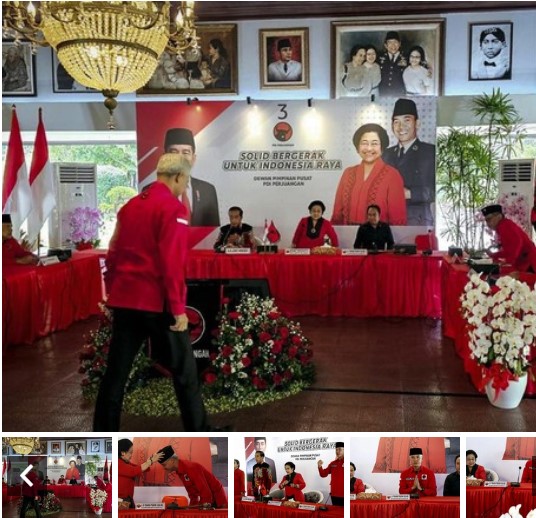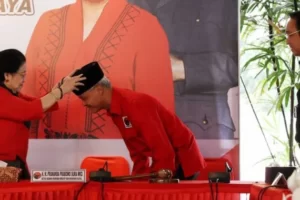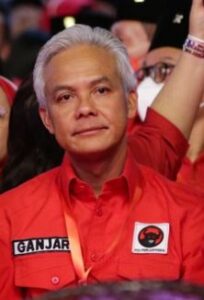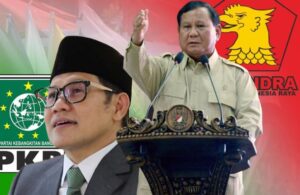
PDIP-cnnindonesia.com
STRATEGIC ASSESSMENT. According to Yvette Tanamal, The Jakarta Post, “Indonesia’s democracy is among the world’s most important both to understand and to defend,” writes American political scientist Dan Slater.

“The world’s largest Muslim country,” he asserts in his latest piece in the Journal of Democracy, “has proven that democracy can emerge and endure in surprising ways and in a surprising place, with intriguing lessons for democratic emergence and endurance elsewhere.”
The article, titled “What Indonesian Democracy Can Teach the World”, may conjure a sense of optimism with its glass-half-full assessment of our political system at a time when the country – like a number of other democracies – is experiencing democratic backsliding and a resurgence of past authoritarian tendencies. But his judgment is also a testament to how difficult and painful the struggle for democracy has been for Indonesia and how stubbornly fragile it remains two decades after its revival.
The Jakarta Post, which turned 40 on Tuesday, can attest to such a sentiment, having reported on the rise, and periodic retreat, of the nation’s democracy from the heyday of Soeharto’s oligarchic regime to the meteoric rise of President Joko “Jokowi” Widodo.
The Post, in its early decades, bore witness to and outlasted Soeharto’s repressive New Order regime, going on to cover five democratic elections, with the sixth one, to be held in February next year, just around the corner.

Meanwhile, Made Supriatma , Visiting Fellow in the Indonesia Studies Programme at the ISEAS – Yusof Ishak Institute, the Indonesian Democratic Party of Struggle (PDI-P) finally nominated Ganjar Pranowo, governor of Central Java, as its presidential candidate on 21 April 2023. The announcement was apparently prepared in haste at the Batutulis palace in Bogor, West Java. Megawati Sukarnoputri, PDI-P’s chairwoman, sealed Ganjar’s nomination by placing a peci (hat) on his head and using the honorific “Bung” to refer to him.

Megawati was accompanied by President Joko Widodo (Jokowi) and two of her children, Puan Maharani – speaker of the Indonesian parliament (DPR) – and Puan’s half-brother Prananda Prabowo. An unusual feature of this event was the presence of President Jokowi; even though he is a PDI-P cadre, he has tried to rise above his party affiliation as president.

PDI-P’s nomination of Ganjar Pranowo has changed the political terrain of the 2024 presidential election (PE) and will affect the existing coalitions. Previously, there were two putative presidential candidates, both of whom share the top three spots with Ganjar in most electability (elektabilitas) polls. Former Jakarta governor Anies Baswedan is supported by the Coalition of Change for Unity, consisting of NasDem, the Prosperous Justice Party (PKS), and the Democrats (DP).

Meanwhile, Defence Minister Prabowo Subianto built the Great Indonesia Awakening Coalition (KKIR) with his party Gerindra and the National Awakening Party (PKB). While KKIR has not officially nominated Prabowo, Gerindra declared him as its presidential candidate back in August 2022. The complication is that Gerindra alone lacks the required 20 per cent parliamentary seat-share to formally nominate Prabowo, while PKB Chairman Muhaimin Iskandar has presidential ambitions too.








